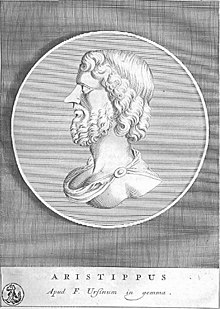Book IV, Chap. XVI ("Degrees of Assent"). There is a section on the difficulty of changing or giving up one's opinion (try doing this on the internet), as well as an observation about the most thoroughly instructed people being less imperious towards others, which latter argument however I think, speaking as a less thoroughly instructed person, is dubious. The older I get, the more I am inclined to think the real reason it is difficult for people to change their opinions about anything is less stubbornness than because they no longer trust their brains' capacity to perceive any ideas, especially new ones, with the degree of clarity and totality needed to embrace an understanding of existence completely opposite to what has informed them previously, however airtight the arguments in its favor are laid not. I certainly cannot.
Locke on the subject of miracles (quotation from a footnote, from a work called Discourse on Miracles): "A miracle I take to be a sensible operation, which being above the comprehension of the spectator, and in his opinion contrary to the established course of nature, is taken by him to be divine." This seems a reasonable definition, or did to me at the time I read it. Now I think it is not solid enough, unless "the spectator" refers to the entirety of humanity.
This chapter closes with the assertion that faith was "nothing else but an assent founded on the highest reason", which is complemented in the notes by a quote attributed to Coleridge ("Christian faith is the perfection of human intelligence"). Would that it were that easy, "easy" striking me here as an ugly thought, in the face of these fine and very beautiful sentiments. I mean this sincerely, and I even believe it is possible that religious faith may in fact be the perfection of human intelligence, especially if ultimate 'truth' is either unknowable or fails to rise above what the most refined minds would consider to be prosaic. Or perhaps these are two of those deceptive statements, at which the naive reader, reassured perhaps, or at least satisfied that he grasps the author's intent, is content to stop considering the matter, while the real intent of the words lies behind this apparent meaning. Or at least one hopes so.
 Book IV, Chap XVII ("Reason"): "Secondly, another way that men ordinarily use to drive others, and force them to submit their judgements, and receive the opinion in debate, is to require the adversary to admit what they allege as proof, or to assign a better. And this I call argumentum ad ignorantiam". This is an excellent point.
Book IV, Chap XVII ("Reason"): "Secondly, another way that men ordinarily use to drive others, and force them to submit their judgements, and receive the opinion in debate, is to require the adversary to admit what they allege as proof, or to assign a better. And this I call argumentum ad ignorantiam". This is an excellent point.
Book IV, Chap. XIX ("Enthusiasm"): "Hence we see, that, in all ages, men in whom melancholy has mixed with devotion, or whose conceit of themselves has raised them into an opinion of a greater familiarity with God, and a nearer admittance to his favour than is afforded to others, have often flattered themselves with a persuasion of an immediate intercourse with the Deity, and frequent communications from the Divine Spirit." Hmm...No, it is just that I would have had a lot of these traits I'm sure if I had lived in that age.
Book IV, Chap XX ("Wrong Assent, or Error") "Take an intelligent Romanist, that, from the first dawning of any notions in his understanding, hath had this principle constantly inculcated, viz. that he must believe as the church...believes, or that the pope is infallible, and this he never so much as heard questioned, till at forty or fifty years old...how is he prepared easily to swallow, not only against all probability, but even the clear evidence of his senses, the doctrine of transubstantiation? This principle has such an influence on his mind, that he will believe that to be flesh which he sees to be bread." The further we move from an intellectual universe where Anglo-Saxon antipathies toward Catholic doctrine and culture constitute one of the primary energies and points of contention--and we seem to have gone a long way down that road just in the last 25 years--the more passages like this, which are to be found all through the major strains of English literature and even philosophical writings, from the Elizabethans up to World War I at least, will serve to call into question the seriousness and even cognitive abilities of the authors who fall into these kinds of traps, especially of course if their powers of reasoning are supposed to be the main basis of their fame. Questioning Catholic beliefs and their origins, or those of other systems one finds distasteful, mind you, I do not see as the problem, but rather to do so, especially as a philosopher, from an attitude that takes for granted one does so within an inherited belief system of his own that is superior without making it clear why this is so that is unacceptable.
 "Tell a man passionately in love that he is jilted; bring a score of witnesses on the falsehood of his mistress, it is ten to one but three kind words of hers shall invalidate all their testimonies."
"Tell a man passionately in love that he is jilted; bring a score of witnesses on the falsehood of his mistress, it is ten to one but three kind words of hers shall invalidate all their testimonies."

No comments:
Post a Comment